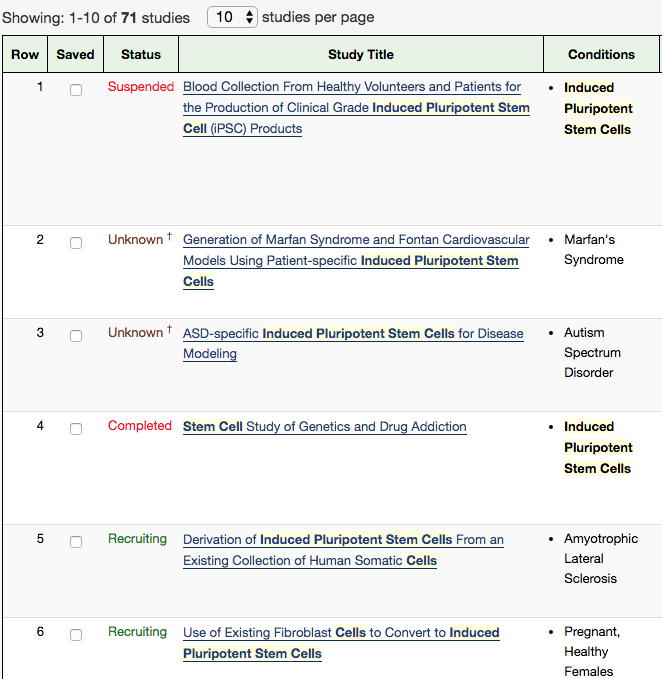The ABCs of Biotech for Christians - Tenth in a series - I is for iPSC
In past centuries explorers looked for a Fountain of Youth that would regenerate their health and reverse the aging process.
Man has not changed over time. We still seek that magical fount that will refresh our bodies and provide miraculous cures from diseases. But today that magic is sought out in biotech labs around the world where experiments with stem cells are ongoing.
A stem cell is a cell capable of generating more cells of the same type or of other types. The human body has 37.2 trillion cells (ref) and 300 million die every minute in our bodies while 242 billion are produced every day.
[Stem cells] in many tissues serve as a sort of internal repair system, dividing essentially without limit to replenish other cells as long as the person or animal is still alive. When a stem cell divides, each new cell has the potential either to remain a stem cell or become another type of cell with a more specialized function, such as a muscle cell, a red blood cell, or a brain cell. (ref)
Imagine the nanotechnology that makes possible the study and use of such cells! There are different kinds of stem cells: adult, embryonic and induced pluripotent.
Adult stem cells are found in many organs and tissues, in the bone marrow, the brain, blood vessels, skin and other parts. A person’s own stem cells can be used to regenerate his health or cure disease. See the Biotech News Odyssey for a news story.
Embryonic stem cells come from embryos who are three to five days old. Science says a human being is conceived when egg and sperm unite to form a zygote, a single cell that begins to divide rapidly. At that single cell stage, the new life has an established sex and all the DNA and genes that will determine his or her full profile.
Yes, the embryo is the fountain of youth and life: It is pluripotent. Its early cells will develop into every other type of cell, so why not study these for their secret power? It does seem that NO is such an obvious answer. We all begin as a zygote and develop into a fetus and are born an infant. These terms define stages of human life, life made in the image of God (Gen 1:27)
To avoid the dilemma of destroying human embryos for scientific research, scientists worked toward developing stem cells that are very much like embryonic ones but are actually derived from adult ones. For example, stem cells from a human liver and from molar teeth have been used in clinical trials.
Called induced pluripotent stem cells, they are invented through injection or combination with genes or proteins that have been proven to regulate pluripotency, and then can act like embryonic stem cells with the capability to differentiate into all 3 germ layers—mesoderm, ectoderm, and endoderm, leading to organ and tissue regeneration in humans.
A clinical trial in Japan in 2016 helped a woman with macular degeneration to regain some aspects of her vision.
Why would there be any objection to this way of research and therapy? If the injected genes do not come from human embryos there could be none, provided sufficient testing shows that no cancer or tumors will form from the therapy. Or, in desperate cases, a person may be willing to take a risk.
Following is a statement on possible ethical concerns:
Human induced pluripotent stem cells can be obtained from somatic cells, and their derivation does not require destruction of embryos, thus avoiding ethical problems arising from the destruction of human embryos. This type of stem cell may provide an important tool for stem cell therapy, but it also results in some ethical concerns. It is likely that abnormal reprogramming occurs in the induction of human induced pluripotent stem cells, and that the stem cells generate tumors in the process of stem cell therapy. Human induced pluripotent stem cells should not be used to clone human beings, to produce human germ cells, nor to make human embryos. Informed consent should be obtained from patients in stem cell therapy.
 Examples of adult stem cell successes are found here. The image shows current clinical trials involving iPSCs. We should also beware of scams.
Examples of adult stem cell successes are found here. The image shows current clinical trials involving iPSCs. We should also beware of scams.
A Christian should encourage medical research that has no immoral side. Doctors and scientists who strive to find cures deserve our love and help.